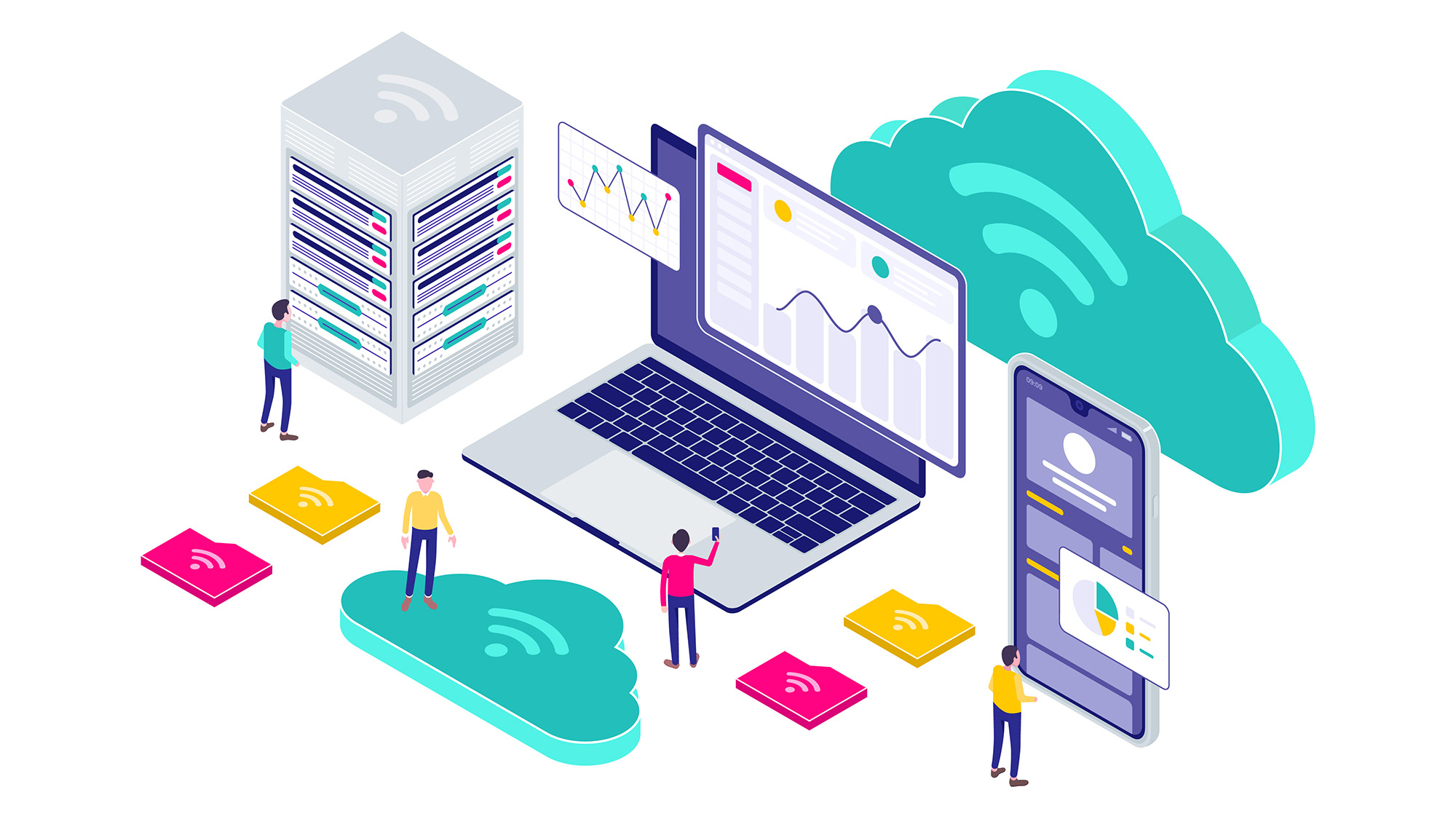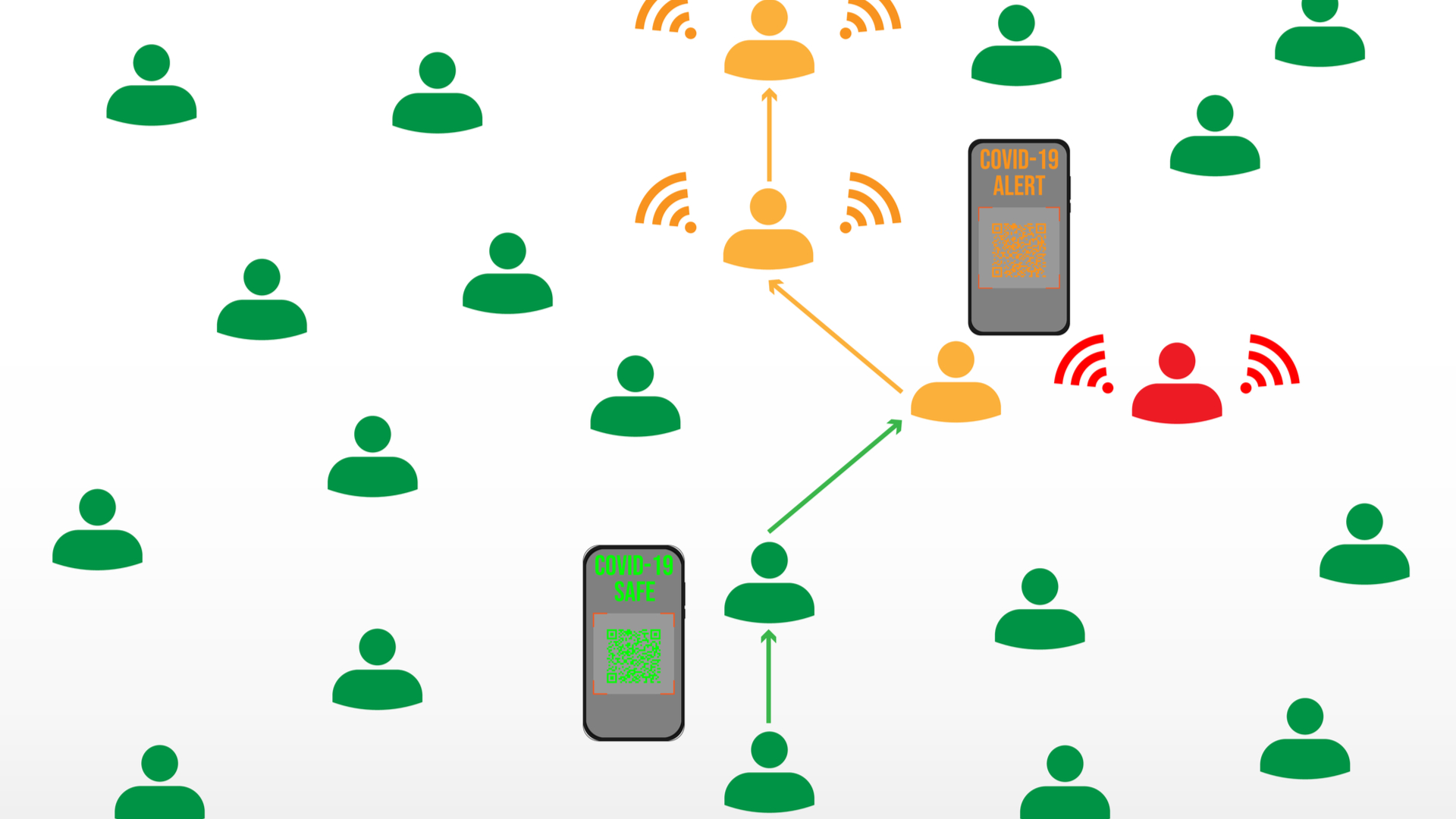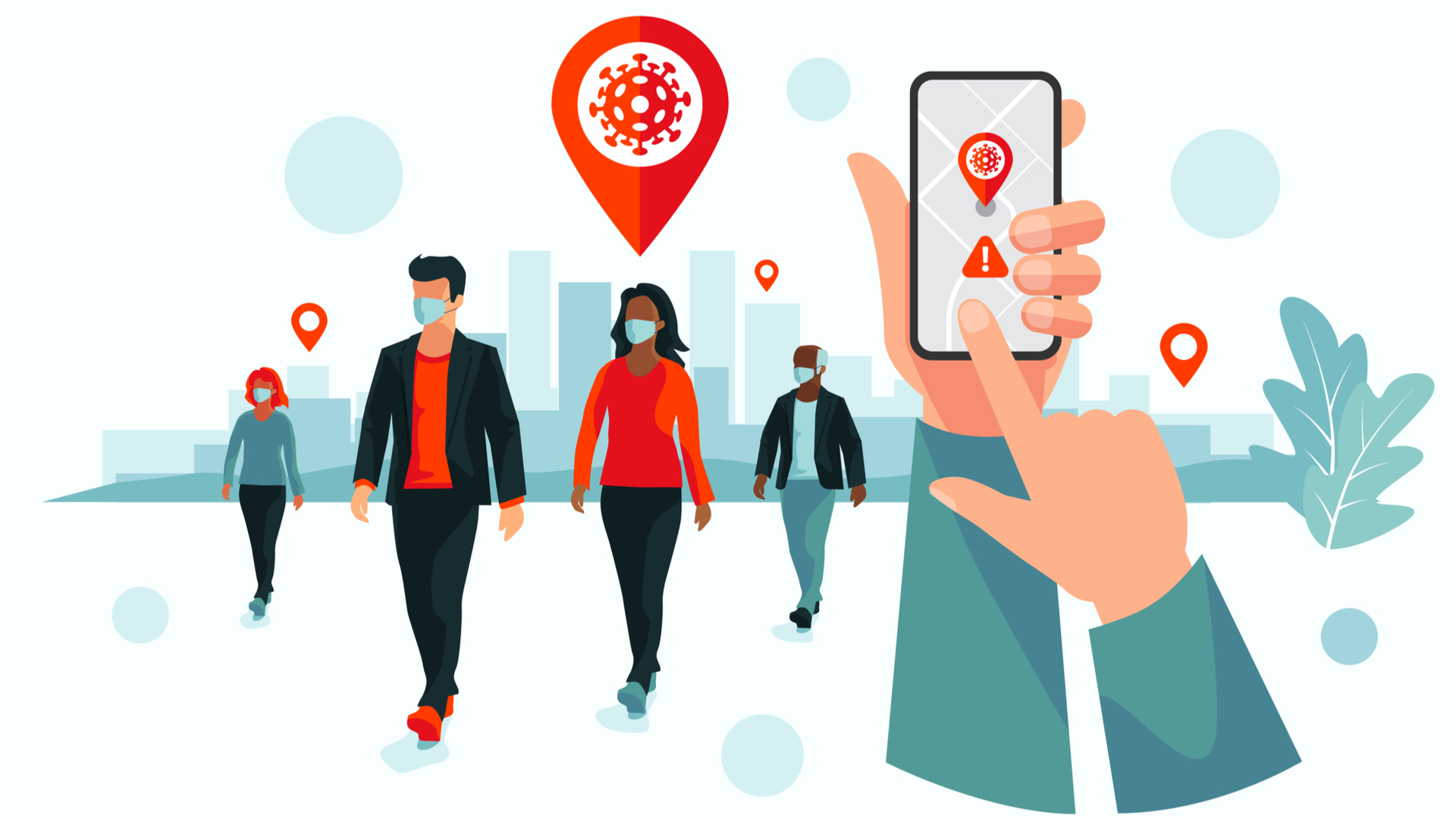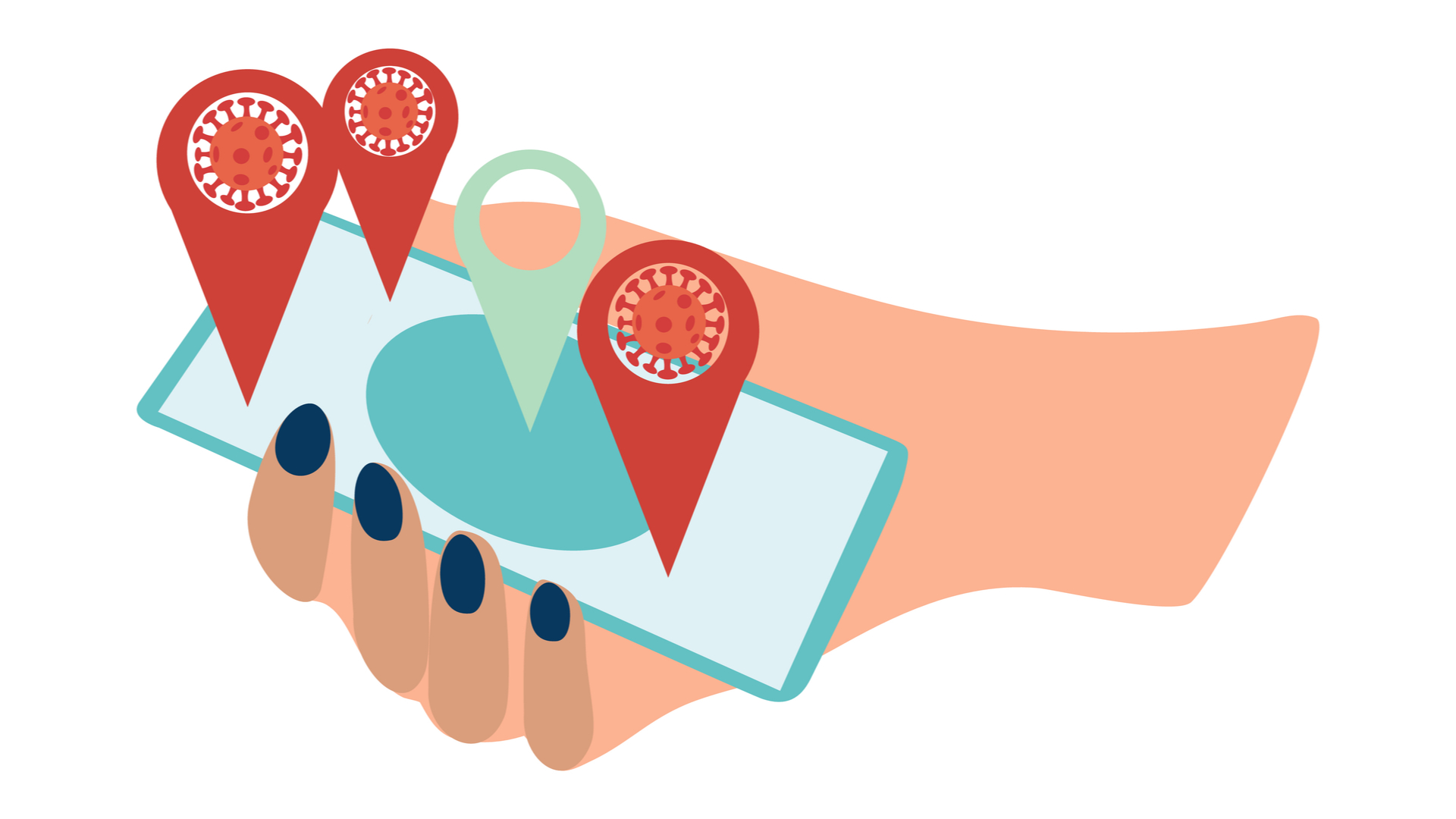Google’s contact tracing tech will be blocked in China
Huawei devices will also be incompatible with the location-tracking tech aiming to curb the spread of COVID-19


Hundreds of millions of Chinese mobile phone users won’t be able to access technology being developed by Google and Apple to power a contact tracing app that aims to contain the spread of coronavirus.
An application programming interface (API) being developed by the two US technology giants is being sampled by healthcare organisations across the world, including the UK, with the NHSX working to develop a contact tracing system.
However, as Android smartphones sold in China cannot have Google services pre-installed, more than 600 million people may have to rely on different systems and technologies, as reported by Zak Doffman in Forbes.
This may also pose an issue in nations outside of China for users who’ve purchased the Huawei P30 series or the recently-launched Huawei P40 series, both of which are also lacking Google services due to an executive order banning US companies from doing business with Huawei.
Governments may find it difficult encouraging uptake with many unable to download apps based on the API.
Moreover, there appears to be no short-term fix for these smartphone users or individuals in China. This presents a potential issue for this technology’s effectiveness, with governments suggesting they would require between 60% and 80% uptake across populations for contact tracing to make a difference.
This is in addition to approximately two billion mobile phone owners around the world who are unable to use the smartphone-based system, according to the Financial Times. This is because the specific wireless chips needed for the technology to work correctly won’t be present in hundreds of millions of handsets still in active use.
Get the ITPro daily newsletter
Sign up today and you will receive a free copy of our Future Focus 2025 report - the leading guidance on AI, cybersecurity and other IT challenges as per 700+ senior executives
The API is built around a mechanism by which individual smartphone emit Bluetooth signals at all times. When two smartphone signals come into close proximity, they download key codes to one another’s device to register a ‘contact’.
After users flag whether they are experiencing coronavirus symptoms, or if they have tested positive, all those they’ve been in contact with are sent alerts. It’s expected that any app based on these principles could accelerate the lifting of lockdown restrictions, and protect the population against future outbreaks.
There are a string of practical issues that may also impede the rollout of a coronavirus app in the UK, despite the UK government’s intentions of developing and releasing technology based on the Google and Apple API as soon as possible.
The UK is ‘too technically limited’ for any such app to be effective, according to a rapid-response report prepared by the Ada Lovelace Institute, with technical and social shortcomings likely rendering the task pointless.
There may be a heavy degree of imprecision in detecting ‘contacts’ between smartphones, for example, while mass-take up can only be achieved if there’s a high level of public trust in the data-gathering exercise.

Keumars Afifi-Sabet is a writer and editor that specialises in public sector, cyber security, and cloud computing. He first joined ITPro as a staff writer in April 2018 and eventually became its Features Editor. Although a regular contributor to other tech sites in the past, these days you will find Keumars on LiveScience, where he runs its Technology section.
-
 Bigger salaries, more burnout: Is the CISO role in crisis?
Bigger salaries, more burnout: Is the CISO role in crisis?In-depth CISOs are more stressed than ever before – but why is this and what can be done?
By Kate O'Flaherty Published
-
 Cheap cyber crime kits can be bought on the dark web for less than $25
Cheap cyber crime kits can be bought on the dark web for less than $25News Research from NordVPN shows phishing kits are now widely available on the dark web and via messaging apps like Telegram, and are often selling for less than $25.
By Emma Woollacott Published
-
 Infostretch and INDIASHIELD partner to resolve COVID crisis in India
Infostretch and INDIASHIELD partner to resolve COVID crisis in IndiaNews Infostrech’s support platform aids INDIASHIELD’s emergency healthcare
By Praharsha Anand Published
-
 Why video conferencing is so tiring and what you can do about it
Why video conferencing is so tiring and what you can do about itIn-depth You’re not alone if you find video meetings far more tiring than the real thing
By Simon Hudson Published
-
 A new age of asset management
A new age of asset managementIn-depth Can migrating a business’ Active Directory to the cloud become a core resource as the consumerisation of tech continues?
By David Howell Last updated
-
 VaxAtlas' looks to connect the public to COVID-19 vaccine distributors
VaxAtlas' looks to connect the public to COVID-19 vaccine distributorsNews New platform unveils portable approach to COVID-19 vaccine distribution
By Praharsha Anand Published
-
 Scotland will launch its own contact-tracing app
Scotland will launch its own contact-tracing appNews The Scottish government says the app will arrive in the autumn and will not ask users to reveal personal information
By Sabina Weston Published
-
 Linux Foundation open-sources coronavirus tracing apps
Linux Foundation open-sources coronavirus tracing appsNews The projects, based on the Google and Apple API, aim to support public health contact tracing efforts
By Keumars Afifi-Sabet Published
-
 Video conferencing service StarLeaf sees a 947% surge in UK usage
Video conferencing service StarLeaf sees a 947% surge in UK usageNews CEO Mark Richer believes this trend will continue long after the pandemic is over
By Sabina Weston Published
-
 UK's contact-tracing app will be ready in "two to three weeks"
UK's contact-tracing app will be ready in "two to three weeks"News NHSX CEO says app will be "crucial" in easing lockdown restrictions
By Sabina Weston Published